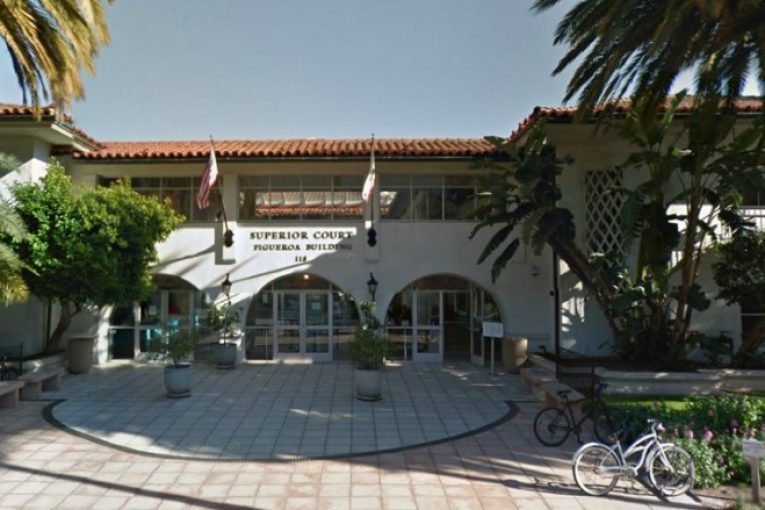
 By Gina Kim
By Gina Kim
SANTA BARBARA, CA – After overseeing a lively discussion over the inconsistent interpretations of vehicle code legislation in previous cases, Santa Barbara County Superior Court Judge Clifford Anderson last Friday ultimately denied diversion for a man charged with driving under the influence.
“JASON” (not a real name – The Vanguard does not reveal the names of those accused of most misdemeanors) was held on misdemeanor charges for driving under the influence, and his attorney put on a spirited defense.
Defense Attorney Darryl Genis pointed to what he called numerous discrepancies in previous decisions involving DUI diversions, such as the San Marino Appellate Court’s decision to grant diversion and the Los Angeles Court’s ruling against diversion.
“Some courthouses are giving away DUI diversion like Halloween candy up in Northern California,” Genis added.
He pointed to the absence of DUI diversion in the vehicle code statute listing indivertible charges, which made room, he said, for so many contrasting court decisions, including a penal code granting military diversion.
Furthermore, Genis noted how the Santa Barbara Public Defender’s office, as well as private counsel from many different offices who’ve practiced before the Santa Barbara bench, had DUI clients that got diversion in Veterans Treatment Court.
“To say you can’t divert DUI is disingenuous and would suggest that all of the veteran’s court diversions that I and fellow counsel and bench have participated in are illegal orders,” Genis stated.
Genis cited the rationale of previous prosecutors who’ve argued DUI shouldn’t be diverted as it would take away the People’s chance to create criminal charge records. However, petty theft is an example of a divertible crime that would remain on record for a lifetime.
According to the statute, defendants’ ability to have diversion is contingent upon their status as active military members, veterans, or nonactive citizens. Nonactive citizens are not granted DUI diversion under the statute.
“You have two people similarly situated given different treatment under the law, which is federal equal protection violation,” Genis stated.
Come Jan. 1, the legislature will revisit this statute, and it may or may not write DUI specifically in the statute listing indivertible charges.
Genis requested the court stipulate the removal of his client from diversion, hence restarting the case with a time waiver.
Prosecutor Dalia Granados countered that the vehicle code statute explicitly states DUI should not be diverted and that the ambiguous statute Genis cited was made while legislatures knew about its existence.
“They should work in harmony, not against each other,” Granados stated about the legislation, citing the veteran’s statute on DUI diversion, which determined that veterans make up a distinct exception to the law.
“I’m not aware of any judge in this county that has granted diversion for DUI’s,” Granados added.
Judge Anderson denied the motion for DUI diversion on the primary basis that the defendant was under the age of 21, and had a .15 blood alcohol level. Moreover, the circumstances of the stop were “a little bit too concerning,” said the judge.
“The court’s decision is not based on whether or not a DUI is divertible under penal code statute, so I’m denying that petition,” Anderson concluded.
The court was scheduled to reconvene on Jan. 21 for this case.

